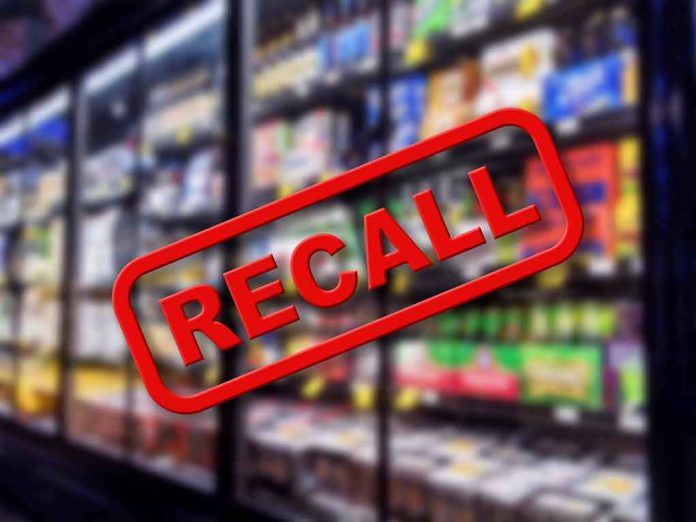
Federal bureaucrats failed to prevent another dangerous food contamination that hospitalized Americans, exposing the government’s inadequate oversight of our food supply chain.
Story Highlights
- FDA recalls Twin Sisters Creamery cheeses after E. coli outbreak sickens three, hospitalizes one
- Raw milk cheeses distributed in Washington and Oregon from July to October 2025
- Government agencies took weeks to act despite confirmed illnesses in September
- Contaminated products may still be in consumer homes due to repackaging complications
Government Response Delayed Despite Known Illnesses
The FDA announced a recall of Twin Sisters Creamery cheese products on October 27, 2025, weeks after three Americans fell ill from E. coli O103 contamination between September 5-16. One victim required hospitalization while federal agencies conducted their investigation. The recall affects Whatcom Blue, Farmhouse, Peppercorn, and Mustard Seed cheeses made from raw, unpasteurized milk and distributed across Washington and Oregon. Laboratory testing confirmed contamination in both opened and unopened samples, proving the systemic nature of this food safety failure.
Raw Milk Products Present Ongoing Safety Risks
Twin Sisters Creamery’s use of raw, unpasteurized milk created the perfect conditions for bacterial contamination that federal regulators should have prevented. Raw milk products lack the heat treatment that kills dangerous pathogens like E. coli, Listeria, and Salmonella. The affected cheeses were distributed from July 27 through October 22, 2025, creating a three-month window of exposure for unsuspecting consumers. This incident highlights how artisanal food producers operating under looser regulations can endanger public health when proper oversight fails.
The contaminated products reached consumers through complex distribution chains that included repackaging under different lot numbers, making it nearly impossible for families to identify dangerous products in their refrigerators. Washington State Department of Health officials worked alongside the FDA to investigate the outbreak, but their delayed response allowed potentially contaminated cheese to remain on store shelves for weeks. Consumer safety depends on rapid government action, not bureaucratic delays that put American families at risk.
Broader Food Safety Crisis Demands Accountability
This E. coli outbreak represents part of a troubling pattern of increasing food recalls across the United States, with raw dairy products identified as particularly high-risk foods requiring stricter oversight. The incident exposes fundamental weaknesses in our food safety system where small producers can distribute contaminated products across state lines before federal agencies take decisive action. Twin Sisters Creamery now faces significant financial losses from recall costs, lost sales, and potential legal liability, but the real victims are the families who trusted government regulators to protect them.
FDA Announces Recall on Cheese Due to E. Coli Contamination—Here's What to Know – EatingWell https://t.co/OJmFQiF3Pz via @GoogleNews
— Johnnie M. Brown (@JohnnieMaeBrown) October 28, 2025
Federal authorities advise consumers to immediately discard any affected cheese products and sanitize all surfaces that may have contacted them. The long-term implications include inevitable calls for increased regulatory oversight of artisanal cheese producers and stricter controls on raw milk products. Americans deserve food safety systems that prevent contamination rather than respond to it after people get sick and require hospitalization.
Sources:
FDA Announces Recall on Cheese Due to E. Coli Contamination—Here’s What to Know
FDA Recalls Raw Milk Cheese Due to E. Coli Contamination
Cheese Linked to E. Coli Outbreak Recalled


